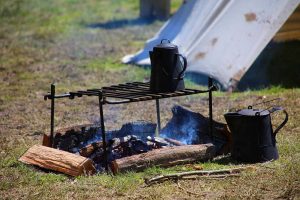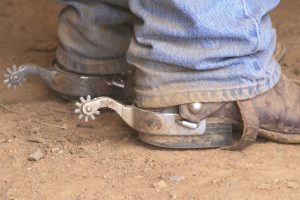“True faith is not blind acceptance. It does not dispense with reason, evidence, and argument. It is, on the contrary, ready to prove all things with sincerity, to investigate earnestly, to institute a thorough search.”
–John Peter Lange
“One of the greatest hindrances to internal peace which the Christian encounters is the common habit of dividing our lives into tow areas–the sacred and the secular.”
–A.W. Tozer
I don’t like snakes. I wrote a few weeks ago of some experiences I have had with snakes. At Heaven-Sent Hunting Camp, Christian family/hunting camp I belonged to years ago, we put welder’s gloves near the door in case we had to go get wood for the fireplace during the night. Just in case one of those varmints was in the woodpile. A friend of mine was working in the yard and cutting down some palms. He went to pick them up and carry them away and as he was walking a pygmy rattler stuck its head out of the refuse. Watch out!
I can remembering once burying a snake we had killed. A few hours later we came by the same spot and the snake had uncovered itself. The muscles moving and relaxing and the dead snake had come up from its grave. Once at the camp a fourteen foot rattlesnake was killed. It was as big as a man’s arm and I saw it the day after it was killed and it was dripping venom.
Snakes like to visit campsites as they like the warmth of the heat. It was a common practice for those on the trail to loop their lariat around their bedroll. The thinking was that the rough rope would irritate the snake’s belly so it would not crawl over the rope. I don’t know if it worked or not.
Monday, I came across this reading and thought I would pass it on. It was written by Elliot Johnson of “Trail Ride Magazine.” “Rattlesnakes were hazards on trail drives. They remain dangerous even after being shot with a .45 or beheaded! One study shows that 15% of rattler bites occur after the snake has been mortally shot, bludgeoned, or even beheaded. One man decapitated a snake, waited five minutes, then picked up the head–which struck him once on each hand! Touch sensors in the snake’s skin and the heat-seeking pit organ between nostrils and eyes can trigger the strike reflex for an hour after. Some say a decapitated rattlesnake should be treated as a very short rattler!”
See that old serpent is dangerous, alive or dead. Adam should have been more aware in the Garden. You may recall the “Passion of the Christ” by Mel Gibson. I love the scene where Jesus steps on the head of the snake. However, what still happened to Jesus? That old serpent still took Him to the grave. The apostles warn us to be alert, be diligence, be wary as we walk through this life. There may be a snake just waiting to strike.
Back to Elliot Johnson’s article. “Satan is a snake who has been decapitated by the Lord Jesus Christ. He cannot harm us if we walk in the light. But the ‘venom’ of sin is still dangerous.” Even though Satan is defeated he can still strike and infuse our body with venom. Sin is still deadly. We must be wary, we must also depend upon the Holy Spirit to guide us along the trail.
Ira Paine
“Then the Lord God said to the serpent: Because you have done this, you are cursed more than any livestock and more than any wild animal. You will move on your belly and eat dust all the days of your life. I will put hostility between you and the woman,
and between your seed and her seed. He will strike your head, and you will strike his heel.”
–Genesis 3:14-15 (HCSB)

 I was feeling a little pain, and was stiff but no worse for the wear, especially considering the alternative. Wells Fargo wanted to me check the wagons that traveled out of Silverton to the little mining towns, and I felt that Molly and the other ladies would be safe now that Bates was out of the way. Old Nickleson, the undertaker, said that he was planning on a section of the cemetery dedicated to me. Guess they call that graveyard humor.
I was feeling a little pain, and was stiff but no worse for the wear, especially considering the alternative. Wells Fargo wanted to me check the wagons that traveled out of Silverton to the little mining towns, and I felt that Molly and the other ladies would be safe now that Bates was out of the way. Old Nickleson, the undertaker, said that he was planning on a section of the cemetery dedicated to me. Guess they call that graveyard humor.